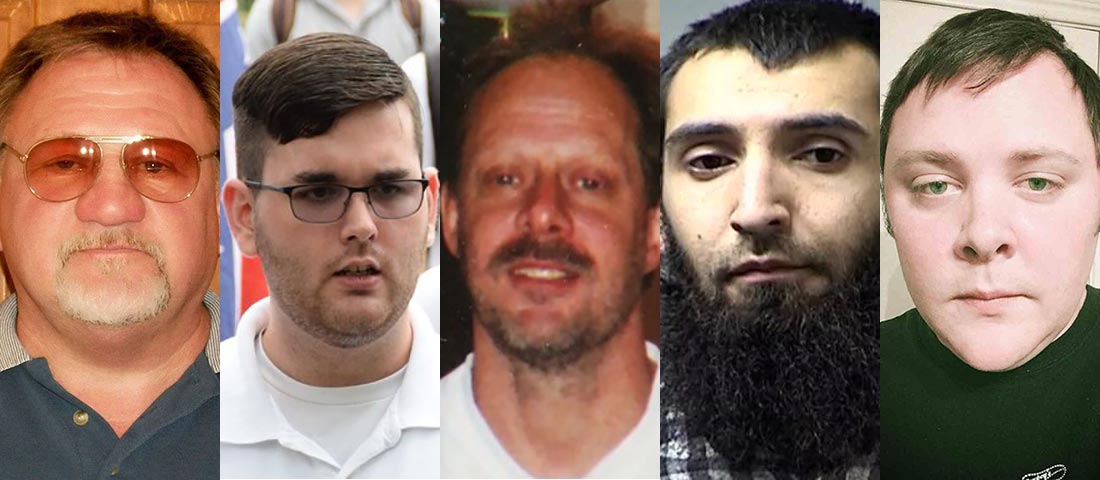Every time somebody commits a crime with a gun, a certain crowd immediately begins to clamor for restrictions on firearms. They blame the crime on our “gun culture,” or on the widespread availability of firearms, or the types of firearms the law allows, or the process by which people buy firearms. This crowd, strangely, never seems to point the finger at the person who used the firearm to commit the crime. It seems like it’s easier for some people to blame the weapon than the person who wielded it.
This is a sort of pathological misdirection, often used (perhaps subconsciously) by people who can’t or won’t face the reality that evil exists. They can’t understand how somebody could slaughter innocent people at a music festival or a church, and so, rather than delve into the hornet’s nest of man’s fallen nature (and the moral and religious implications thereof), they come to a simple but wrong conclusion: They did it because of the guns.
It’s easier for some people to believe the obvious absurdity that guns somehow make people do evil things than to deal with the hard realities of good and evil.
This does not typically happen when other tools are used to commit evil acts. Few called for “truck control,” or blamed America’s “truck culture” or the “easy availability of trucks,” when another evil man mowed people down on a New York City bike trail. Why? Why is gun crime the fault of the gun, but truck crime not the fault of the truck?
The same people who will not demonize evil men can easily demonize guns because they can’t (or choose not to) understand their purpose. A box-cutter opens boxes, a kitchen knife cuts the cantaloupe, and a rented truck moves your plywood. But what does a gun do? What is its innocent, practical purpose? Of course there is an answer, even if I put aside the largely-uncontroversial examples of target shooting and hunting. A gun’s purpose, in the hands of a law-abiding citizen like myself, is to give good a fighting chance against evil. It is not a guarantee of success, but it improves your chances. It helps level the field.
But to the gun-haters, especially those who have had little exposure to guns and don’t know many (if any) gun owners, I might as well be speaking Klingon. The person who blames the gun because it is easier than blaming the person also cannot understand my explanation of why guns are important.
There is a perverse, but simple, logic to this kind of thinking: If the gun is what is evil, not the killer, then when a good person buys a gun they are just adding more evil. To somebody who holds this flawed, saccharine worldview, the fact that a good person buying a gun is bolstering the good and improving its odds against evil is incomprehensible. If you cannot admit that there are evil people in the world who will do evil things, then the idea that good people may want to have effective defensive tools against them does not compute.
“If we just get rid of the guns,” says the denier of evil, “then these things would not occur.” But they would. They would occur with trucks and knives, machetes and chainsaws, box-cutters and crossbows, fists and razors, two-by-four boards and, yes, guns (because terrorists and criminals will still get them on the black market even if they are unavailable to law-abiding citizens). In other words, evil will persist. Perhaps eliminating guns would make mass casualty attacks more difficult, but it would also remove the most effective tool that good people can—and do—use to stop them. Attackers using any of the above-mentioned tools would be vulnerable to an armed response by citizens or law enforcement. Why take away the best available defense?
It is both irrational and counterproductive to fight evil by disarming good. My guns have never harmed anybody, because I have not used them to harm anybody. My guns are only as innocent or guilty as I am when I use them. And if guns made people commit evil acts, then I would be a killer . . . because I am sitting as I write this in a room with a safe that holds some of my family’s firearms. But I am not a killer. A gun in an evil person’s hands can take lives. But that same gun in a good person’s hands can save them.
This may be hard for you to accept, but accept it you should, because it is the truth. Evil exists. And good people ought to have every opportunity to protect themselves and others from it.
* Faces of Evil, left to right:
-
- James Hodgkinson, congressional baseball shooting (left-wing political violence)
- James Alex Fields Jr., Charlottesville vehicular attack (right-wing political violence)
- Stephen Paddock, Route 91 Harvest festival shooting (motive unknown)
- Sayfullo Saipov, lower Manhattan truck attack (Islamic terrorism)
- Devin Kelley, Sutherland Springs church shooting (possibly domestic violence)


